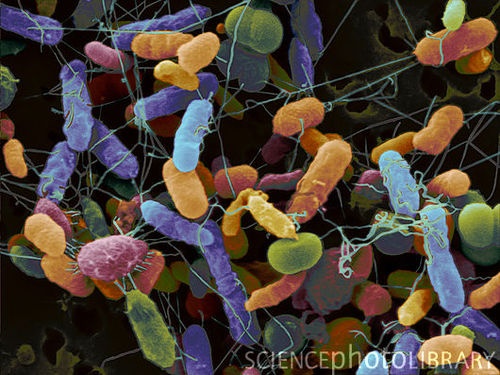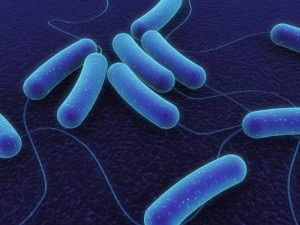Gut Bacteria vs Celiac Disease. Smoking Gun? Innocent Bystander?
 Only a small proportion of individuals who are genetically susceptible to celiac disease actually develop the condition, though the reasons why have been unclear. Investigators in a study published in The American Journal of Pathology, October 2015 focused their attention on environmental determinants, including gut microorganisms, and how they might contribute to the development of celiac disease in those who are genetically predisposed.
Only a small proportion of individuals who are genetically susceptible to celiac disease actually develop the condition, though the reasons why have been unclear. Investigators in a study published in The American Journal of Pathology, October 2015 focused their attention on environmental determinants, including gut microorganisms, and how they might contribute to the development of celiac disease in those who are genetically predisposed.
Using a humanized mouse model of gluten sensitivity, a team of researchers led by Dr. Elena Verdu, from McMaster’s Farncombe Family Digestive Health Research Institute found that the gut microbiome can play an important role in the body’s response to gluten.
They raised two groups of mice with a genetic predisposition for celiac disease. One group was made to have ultra clean gut bacteria and other to have complex bacteria, including E. Coli, Staphylococcus and Helicobacter.
The mice with the complex bacteria reacted negatively to gluten, while the other mice didn’t. When researchers enhanced the amount of complex bacteria in their guts, their negative reactions became stronger. The team also implanted some “clean bacteria” mice with complex bacteria and found they went on to develop celiac symptoms.
 These results are in line with suspicions that environmental factors are causing an increase in the prevalence of celiac disease. In the past 40 years, the number of cases has increased four-fold. Verdu explains our changing habits are partly to blame, “One of the factors is the type of lifestyle that we have, so use of antibiotics has become widely spread. the type of food that we eat also influences the type of bacteria we harbour in our gut.”
These results are in line with suspicions that environmental factors are causing an increase in the prevalence of celiac disease. In the past 40 years, the number of cases has increased four-fold. Verdu explains our changing habits are partly to blame, “One of the factors is the type of lifestyle that we have, so use of antibiotics has become widely spread. the type of food that we eat also influences the type of bacteria we harbour in our gut.”
In the past 40 years, the number of cases has increased four-fold. Verdu explains our changing habits are partly to blame, “One of the factors is the type of lifestyle that we have, so use of antibiotics has become widely spread. the type of food that we eat also influences the type of bacteria we harbour in our gut.”
 “These studies demonstrate that perturbation of early microbial colonization in life and induction of dysbiosis (microbial imbalance inside the body), characterized by increased Proteobacteria, enhances the severity of gluten-induced responses in mice genetically predisposed to gluten sensitivity,” says Dr. Verdu.
“These studies demonstrate that perturbation of early microbial colonization in life and induction of dysbiosis (microbial imbalance inside the body), characterized by increased Proteobacteria, enhances the severity of gluten-induced responses in mice genetically predisposed to gluten sensitivity,” says Dr. Verdu.
However, in an editorial linked to the study, Dr. Robin G. Lorenz, of the University of Alabama at Birmingham, notes that while these findings suggest the presence of Proteobacteria may play an important role in celiac disease pathology, they do not mean that Proteobacteria causes the condition. An alternative, he suggests, is that Proteobacteria somehow boost the immune response to gluten or gliadin.
References: Elena F. Verdu, MD, PhD. Intestinal Microbiota Modulates Gluten-Induced Immunopathology in Humanized Mice. The American Journal of Pathology, October 2015 Details here












